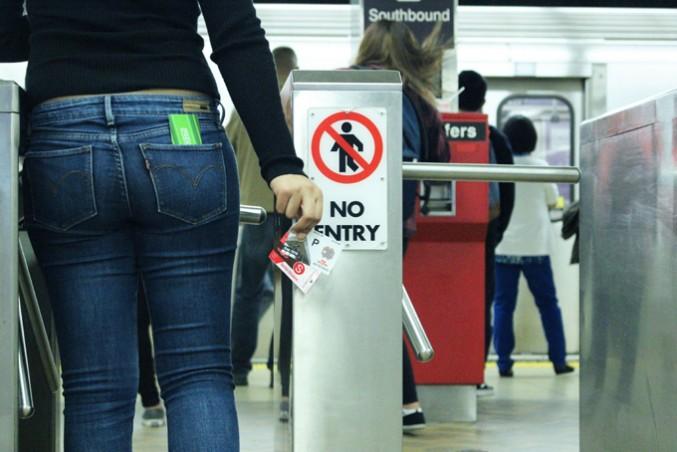By Sarah Krichel and Olivia Bednar
Students who use the TTC will be able to use their tickets, tokens and Metropasses until December 2017. After that, the Presto card will take over—but low-income students and other TTC users still have no real alternative, according to city councillor Kristyn Wong-Tam.
Wong-Tam said that the TTC is lacking the political will to expand on its transit equity.
“While you’re already introducing a new payment program, why not embed into that new payment program an anti-poverty lens to provide assistance for those who are already feeling so challenged by the extensive cost of transit,” she said.
The price to ride the TTC will remain the same when the Presto card takes over, being $3.25 paid with cash and $2.90 with Presto (and currently with tickets and tokens).
A report on the feasibility of low-income passes from the TTC was expected last year, but was postponed until the end of this year, according to Wong-Tam.
“Unless they make any changes to the pricing of Presto, then unfortunately we are going to be missing an opportunity,” Wong-Tam said.
Wong-Tam also said that there is an issue regarding the range of options on where to purchase your fare for the TTC because it has drastically been narrowed down.
Some students think that the money they could be saving can go toward more important student needs, like Ora Avshalumov, second-year accounting and finance student.
“That money can be used towards [food] or textbooks or anything better,” she said.
Heather Brown, a senior communications advisor at Presto, said that the benefit of Presto for TTC riders is not worrying about pocket change, and to only have to carry one card. Their main goal for the gradual changeover in 2017 is to put Presto card readers in every station that does not currently have them.
The card can be used across 11 transit agencies, including Mississauga, Brampton and Hamilton.
The TTC plans to keep the current Presto system in place, where users can reload their cards as needed (automatic reloading is also available).
Students will also have the option to pay $112 and get unlimited rides for the month. Other plans have been made to introduce a paper Presto card for single-use.
Corey Scott, equity and campaigns organizer for the Ryerson Students’ Union, said he believes the TTC is still missing accommodation features.
Right now, the equity centre gives out TTC tickets and tokens to students attending who need them to attend equity events. Even with the TTC’s plan to have single-use paper Presto passes, Scott said it’s unclear whether or not it will work for the equity centre.
“I think with the new Presto system, there’s been so much confusion about how it’s going to be accessible when it’s actually rolling out, and when it rolls out what it’s actually going to look like,” Scott said.
Scott added that a lot of students fall in the low-income demographic, and a Metropass is just not affordable for them.
“We have issues with Toronto continually being behind on low-income transit passes,” Scott said. “We also have students who are scheduling their classes on certain days rather than travelling to campus for a fourth or fifth day every week.”
Scott said that students suffer from poverty as much as anyone else, and with 80 per cent of Ryerson students being commuters, they must be accommodated.
Wong-Tam added that she believes a more equitable fare system is possible for TTC users who are more vulnerable, such as students, the under-employed and the unemployed.
“No one is asking for free TTC service, they’re saying reduce the price so my family and I can actually afford it. That’s what they’re saying. Logical.”













Leave a Reply